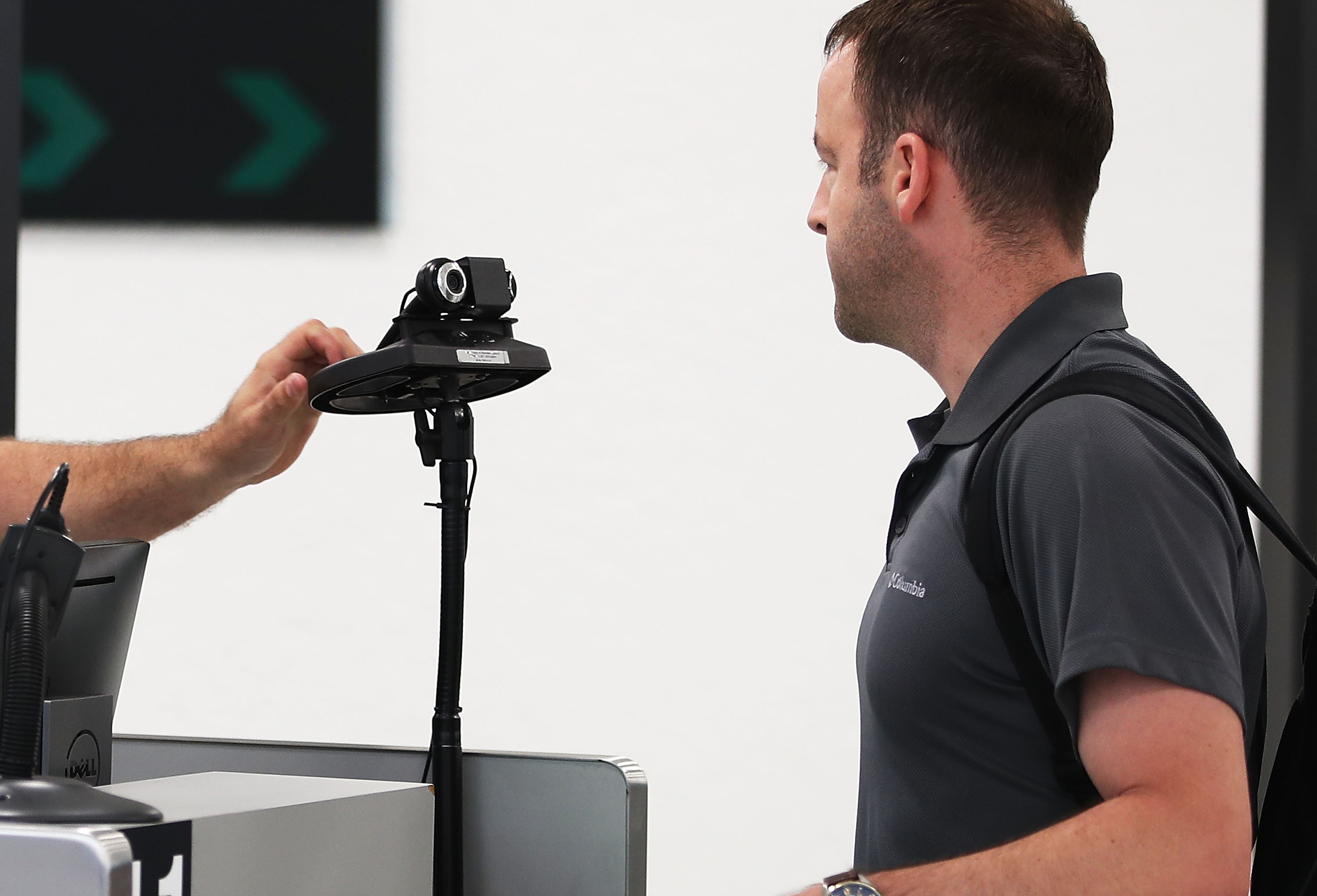Microsoft urges regulation of face-recognizing tech

MIAMI, FL – FEBRUARY 27: A U.S. Customs and Border Protection officer instructs an international traveler to look into a camera as he uses facial recognition technology to screen a traveler entering the United States on February 27, 2018 at Miami International Airport in Miami, Florida. The facility is the first in the country that is dedicated to providing expedited passport screening via facial recognition technology, which verifies a traveler’s identity by matching them to the document they are presenting. Joe Raedle/Getty Images/AFP
Microsoft’s chief legal officer on Friday called for regulation of facial recognition technology due to the risk to privacy and human rights.
Brad Smith made a case for a government initiative to lay out rules for proper use of facial recognition technology, with input from a bipartisan and expert commission.
Facial recognition technology raises significant human rights and privacy concerns, Smith said in a blog post.
“Imagine a government tracking everywhere you walked over the past month without your permission or knowledge,” he said.
“Imagine a database of everyone who attended a political rally that constitutes the very essence of free speech.”
It could become possible for businesses to track visitors or customers, using what they see for decisions regarding credit scores, lending decisions, or employment opportunities without telling people.
He said scenarios portrayed in fictional films such as “Minority Report,” “Enemy of the State,” and even the George Orwell dystopian classic “1984” are “on the verge of becoming possible.”
“These issues heighten responsibility for tech companies that create these products,” Smith said.
“In our view, they also call for thoughtful government regulation and for the development of norms around acceptable uses.”
Microsoft and other tech companies have used facial recognition technology for years for tasks such as organizing digital photographs.
But the ability of computers to recognize people’s faces is improving rapidly, along with the ubiquity of cameras and the power of computing hosted in the internet cloud to figure out identities in real time.
While the technology can be used for good, perhaps finding missing children or known terrorists, it can also be abused.
“It may seem unusual for a company to ask for government regulation of its products, but there are many markets where thoughtful regulation contributes to a healthier dynamic for consumers and producers alike,” Smith said.
“It seems especially important to pursue thoughtful government regulation of facial recognition technology, given its broad societal ramifications and potential for abuse.”
Concerns about misuse prompted Microsoft to “move deliberately” with facial recognition consulting or contracting, according to Smith.
“This has led us to turn down some customer requests for deployments of this service where we’ve concluded that there are greater human rights risks,” Smith said. /muf